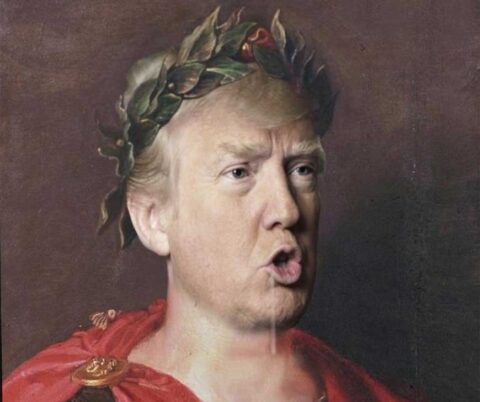On the social media platform formerly known as Twitter, John Carter posted an amusing thread (unrolled here courtesy of the @threadreaderapp):
Trump, Musk, Vance: the new triumvirate, bringing a window of stability to the troubled Republic.
Trump: the old warhorse, beloved of the people, a part of the establishment but with an uneasy relationship to it. Trump is Pompey.
Musk: the richest man in the world. Musk is Crassus.
Vance: the charismatic young upstart. Vance is Caesar.
So how does this play out?
Musk’s ambition is to go to Mars, just as Crassus wanted to conquer Parthia. Musk harnesses his wealth, launches the expedition to great fanfare. Things go horribly wrong after their arrival. Contact with the colony is lost. Musk’s grave is never found.
At the head of a private military corporation equipped with letters of marque, Vance is sent into the badlands of South America to crush the cartels and secure the Panama Canal. The war takes longer than expected. By the end of it, Vance hasn’t merely crushed the cartels – he’s conquered the entirety of Central America.
At home, Vance is beset by his enemies in the Senate, who mistrust his ambitions and intentions. It is whispered that he wishes to make himself king.
Vance’s enemies whisper in Trump’s ears. Were you not the one who built the wall? If Vance brings the Central American republics into the Union, what then of immigration? Of your life’s work? Vance will destroy it all.
And do the people, after all, not love you first and most? Are you not their hero? Why then should you fear this upstart?
With Trump’s blessing, Vance is recalled by the Senate, to face charges of corruption.
But throughout this time Vance has been building auctoritas with the people, going directly to them with his poasts, showing them his victories and their fruits. The people have come to love him more than they love Trump — for he has sent great wealth back to them, and crushed their enemies abroad.
And so the fateful day comes in which Vance returns, as summoned … but he does not demobilize his mercenary army when it crosses the Rio Grande. His forces — which now include former cartel soldiers, some of whom he has won to his side — drive straight to Washington in a blitzkrieg attack.
Washington empties out in panic.
Trump and the Senate flee to New York City, where they rally their forces. There are still many who are loyal to Trump, particularly within the military … but it turns out that Trump’s base is much older than Vance’s … and there are many, more than expected, who declare for Vance.
And so the Union cracks apart into the Civil War that was deferred when the triumvirate first seized power, so many years ago.
But this is not first and foremost a war of ideology, as it would have been — a showdown between right and left.
It is a war of personalities and personal loyalty, a war to determine a single question: who is to be king?
Obviously none of this is going to happen. History never repeats itself so precisely.
But it’s fun to think about Vance rampaging around Central America at the head of a PMC.






